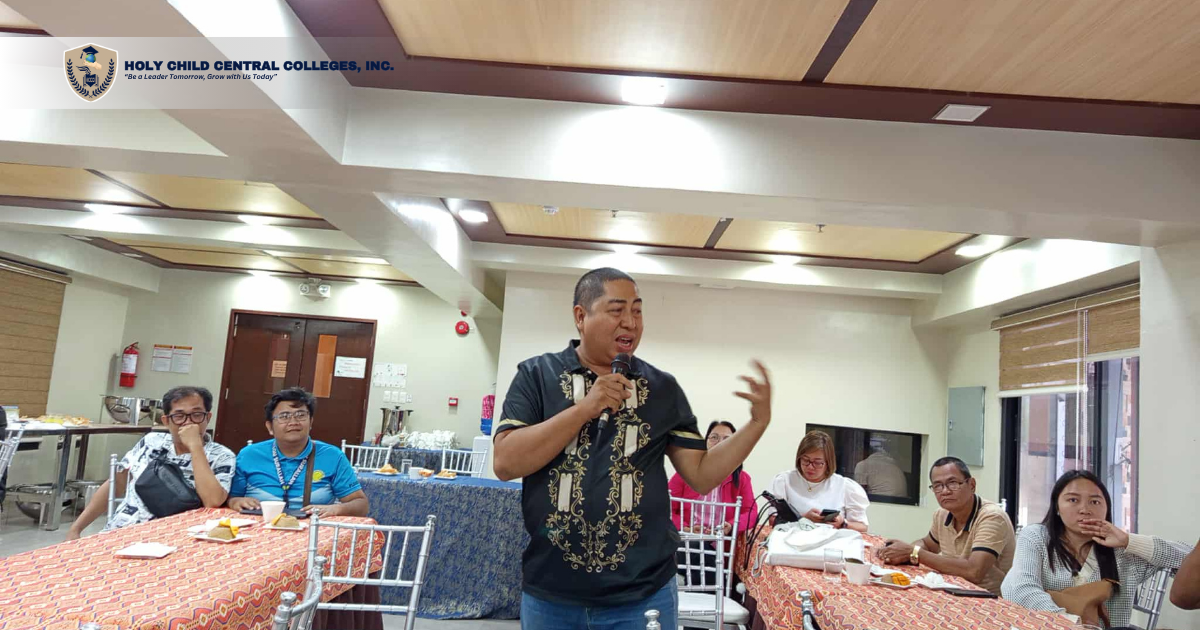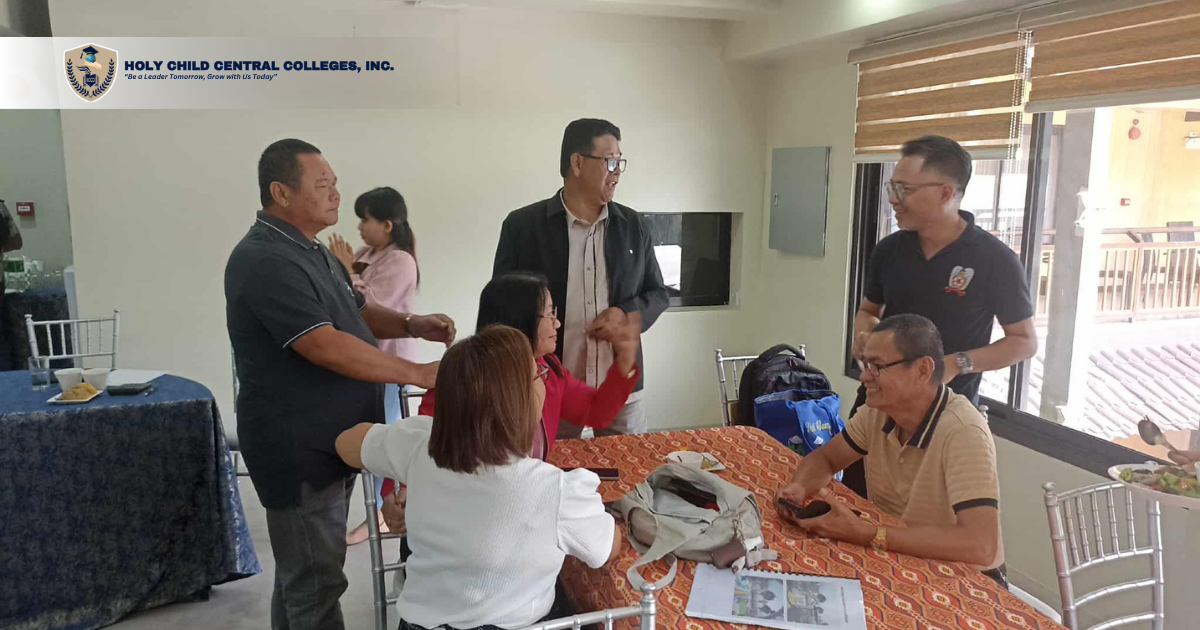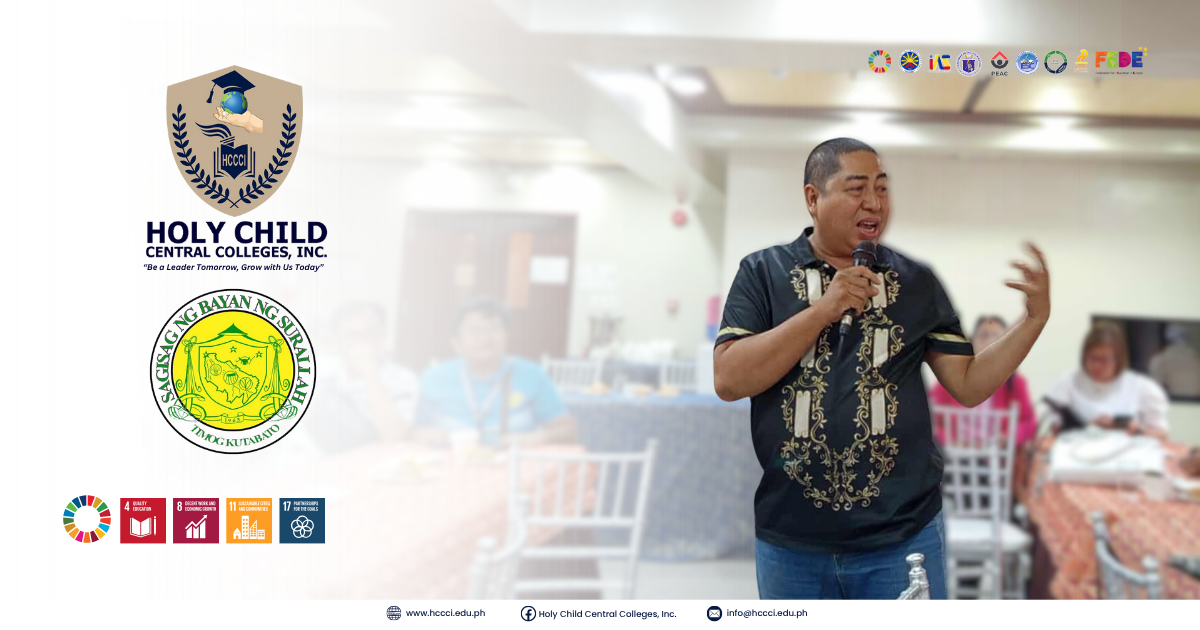𝐇𝐂𝐂𝐂𝐈 𝐄𝐧𝐠𝐚𝐠𝐞𝐬 𝐢𝐧 𝐒𝐮𝐫𝐚𝐥𝐥𝐚𝐡’𝐬 𝟏-𝐃𝐚𝐲 𝐅𝐨𝐫𝐮𝐦 𝐨𝐧 𝐋𝐞𝐠𝐢𝐬𝐥𝐚𝐭𝐢𝐯𝐞 𝐀𝐜𝐭𝐢𝐨𝐧 𝐚𝐧𝐝 𝐄𝐜𝐨𝐧𝐨𝐦𝐢𝐜 𝐃𝐞𝐯𝐞𝐥𝐨𝐩𝐦𝐞𝐧𝐭
The Municipality of Surallah, South Cotabato, successfully held its 1-Day Forum on Legislative Action on Economic Development on September 29, 2025, at Dolores Lake Resort, Lake Sebu, South Cotabato. Organized by the Local Government of Surallah under the Office of the Mayor, the event sought to strengthen the legislative role of the Sangguniang Bayan by ensuring that economic policies remain responsive to changing realities while fostering competitiveness, inclusivity, and sustainable governance.
Holy Child Central Colleges, Inc. (HCCCI) was represented by its Research Director, Mr. Marlon L. Viejo, who attended and actively participated as one of the institutional delegates. His presence underscored the vital contribution of the academe in bridging research and governance, demonstrating HCCCI’s steadfast commitment to evidence-driven policymaking and its role as a partner in promoting local and regional development.
The forum served as a strategic venue for legislators, department heads, technical staff, and stakeholders to gather and deliberate on key ordinances such as the Investment Incentive Code and the crafting of the Microenterprise Ordinance. These policy instruments are central to Surallah’s ambition of remaining a growth hub in South Cotabato, providing opportunities for investment while addressing persistent challenges in taxation, labor protection, sanitation, environmental management, and informality in economic activities. By refining and harmonizing these ordinances, the municipality ensures that economic growth is not only achievable but also equitable and sustainable.
Through presentations, case analyses, and group workshops, participants engaged in meaningful conversations about the dynamics of informality in the local economy, assessing the strengths and weaknesses of current legislation, and identifying opportunities for alignment with emerging development priorities. The outcomes of the forum aimed to produce actionable policy inputs, ensuring that ordinances are not static documents but living instruments of progress that serve the needs of businesses, communities, and governance alike.
HCCCI’s involvement through Mr. Viejo highlighted the institution’s advocacy for research-driven community engagement, particularly in spaces where policy intersects with development. By contributing to these discussions, HCCCI reaffirmed its role as a catalyst for knowledge exchange and as a partner institution working alongside government bodies to promote resilience, innovation, and sustainability in local economies.

Importantly, the forum’s objectives and outcomes align with the United Nations Sustainable Development Goals (SDGs), situating Surallah’s local governance within a global framework of sustainable progress. The review of the Investment Incentive Code and development of the Microenterprise Ordinance directly contribute to SDG 8 by fostering inclusive economic opportunities, job creation, and entrepreneurship, ensuring that growth reaches all sectors of society. At the same time, by supporting small entrepreneurs and encouraging local investment, the municipality strengthens SDG 9 through the nurturing of industries that are both innovative and sustainable, vital for resilient infrastructure and economic competitiveness. The forum’s focus on labor protection, sanitation, and environmental management echoes the aspirations of SDG 11, which envisions communities that are safe, inclusive, and environmentally responsible. Equally important, the collaboration between the local government, HCCCI, and other stakeholders demonstrates the spirit of SDG 17, where partnerships at the local level drive broader global goals, proving that sustainable development thrives on cooperation and shared responsibility.
By actively engaging in this forum, HCCCI not only strengthened its institutional linkage with the Local Government of Surallah but also reaffirmed its broader mission to align academic, research, and extension services with sustainable development imperatives. The institution’s participation is a testament to how higher education institutions can play a transformative role in shaping legislation that not only drives local economic growth but also contributes meaningfully to the collective pursuit of the Sustainable Development Goals.
